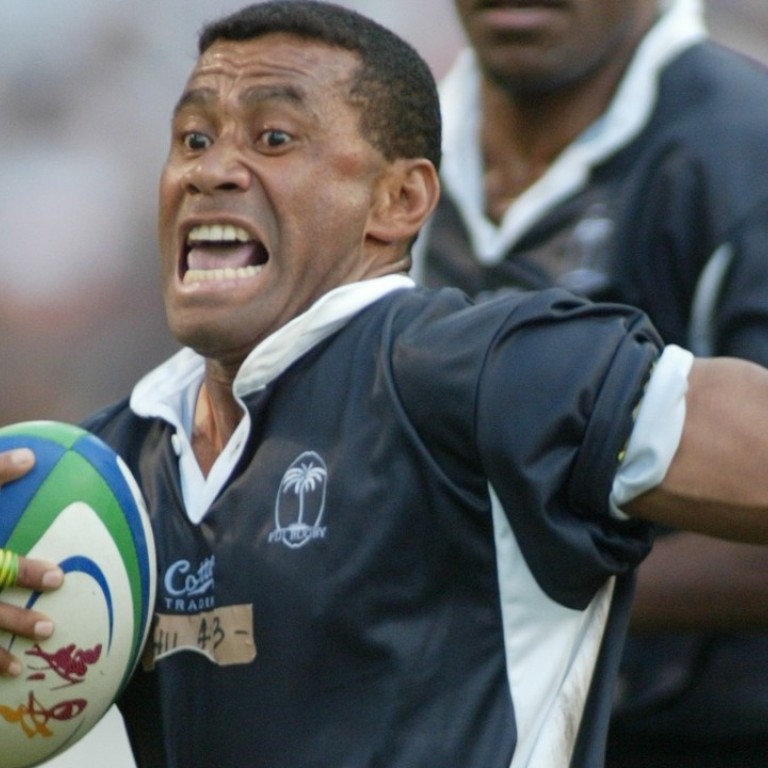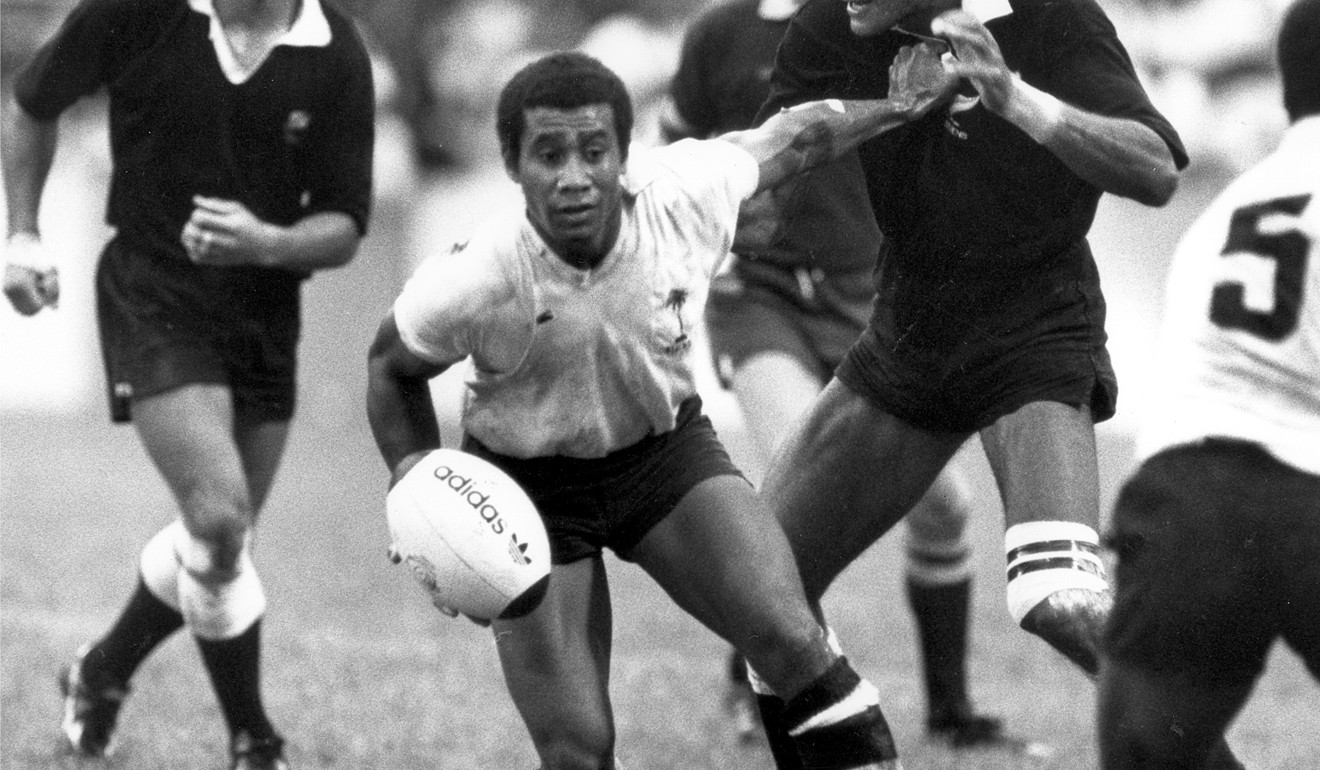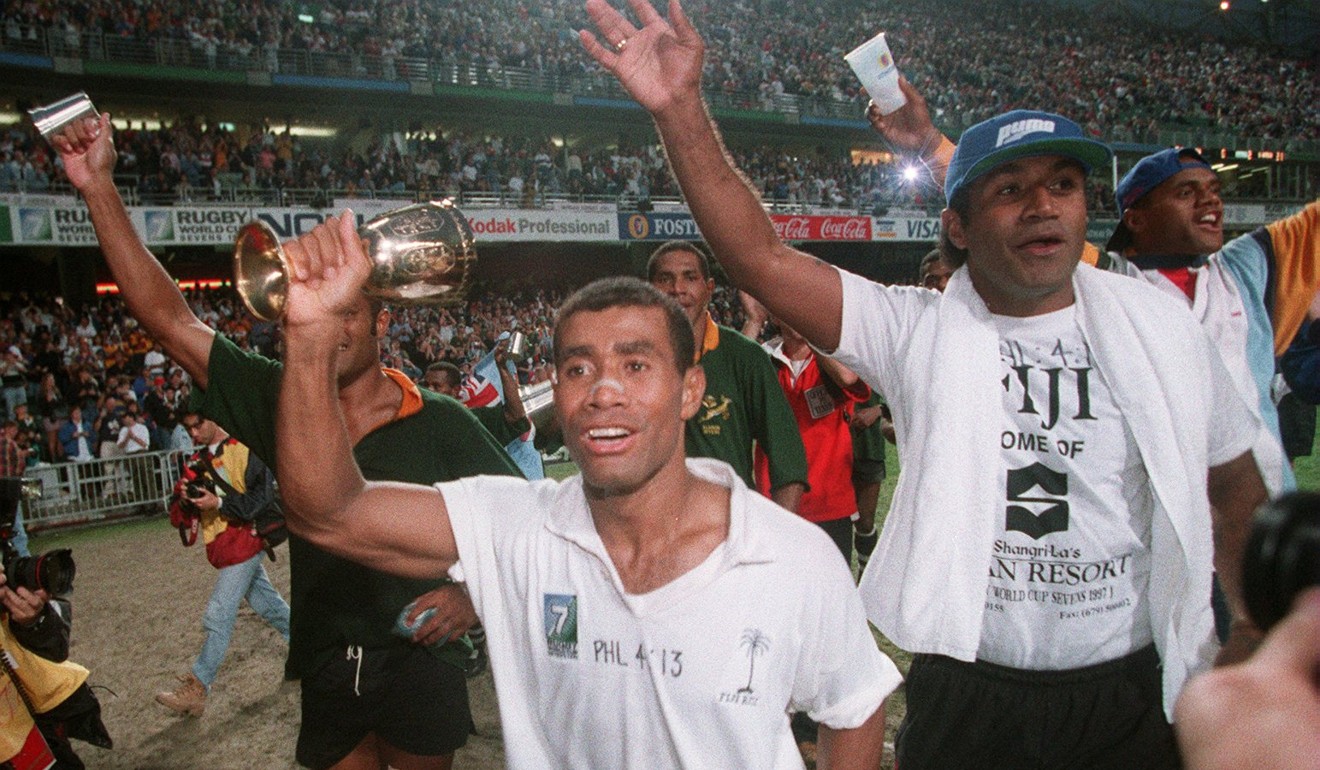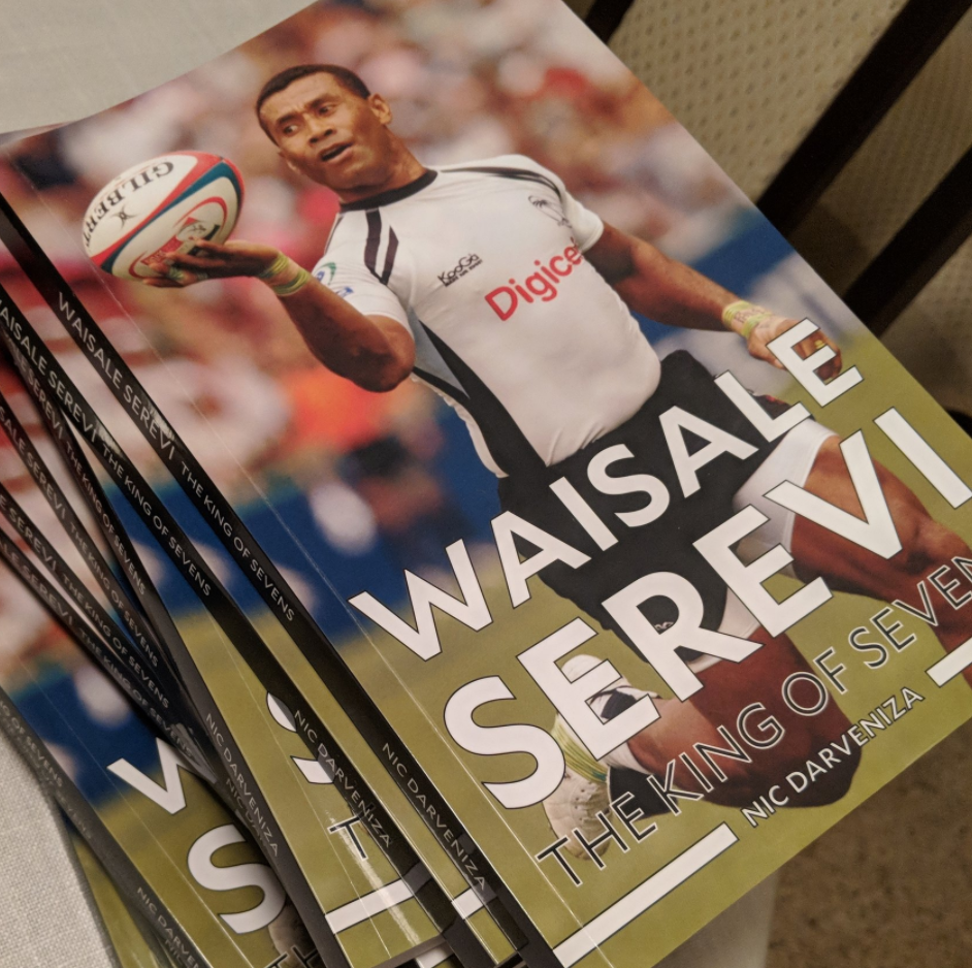
He may be the ‘King of Sevens’ but Waisale Serevi slept on the floor of the Hong Kong Hilton during 1990 triumph
If the ‘little master’ thought winning the MVP in 1989 as a 20-year-old meant glitz and glamour on his return to the territory, he was sadly mistaken
He had burst onto the scene as a 20-year-old by winning MVP at the 1989 Hong Kong Sevens, but if Waisale Serevi thought that meant glitz and glamour on his return to the territory, he was sadly mistaken.
He was already the star of a powerful Fijian team that was about to win their first Sevens in six years, but throughout the barnstorming 1990 campaign, Serevi was ... sleeping on the floor of Hong Kong’s Hilton Hotel.
A new book tracking the life of the little master – Waisale Serevi, The King of Sevens – outlines how the manic excitement surrounding the little master mattered little to his more senior teammates.
“By tradition, two players roomed together for each tournament but in 1990 the inclusion in the touring party of the coach’s father, Ratu Ilisone Ravoka, made space a valuable commodity,” the books says.
“As the baby of the party, Serevi was assigned to a room with his halfback partner Pauliasi and his uncle Vesi, eight years his senior.

“With just two beds servicing three adults, Pauliasi had to make a tough call. He looked Serevi up and down and claimed the bed closest to the window. He then assigned Vesi the bed closest to the door.
“If the 1989 Hong Kong Sevens MVP thought he was owed special treatment, he was sadly mistaken. Pauliasi handed him some spare sheets. Serevi would be sleeping on the floor this year.”
It is just one of many tales of how Serevi and Fijian rugby players in general often had to get by on less than many of their opponents due to financial constraints.
Another such instance was when Fiji travelled to Scotland for the inaugural Rugby World Cup Sevens in 1993 – as well as they were prepared on the field, they had grossly underestimated the cold of Edinburgh.
“No Fijian player owned a jacket, so each stacked on several layers of cotton jerseys hoping they would suffice for that moment of truth when they stepped off the team bus for their first training session.
“At first it seemed like someone was throwing rocks or gravel at them. After a hasty reconnaissance seeking out any mischievous Edinburgh youths, it suddenly dawned on Serevi that these small stones were actually falling from the sky.
“The Fiji team was on the precipice of a full blown hailstorm. The boys beat a hasty retreat back to their bus to wait out the storm and dispatched the team manager to find some more suitable cold weather gear for the next excursion into Scotland’s freezing conditions.

“Somewhere along the line that communication got horribly scrambled. When the team returned to their hotel that evening, the manager presented them with his solution to their problem.
“The players were crying out for solid waterproof athletic wear to seal out the cold and damp but instead were handed 12 dinner suit jackets, resplendent in a maroon finish!
“With no other options, the Fijian squad soldiered on through their ‘dinner party’ training session the next day wondering how on earth they had finished up in this ‘formal” predicament’.”


